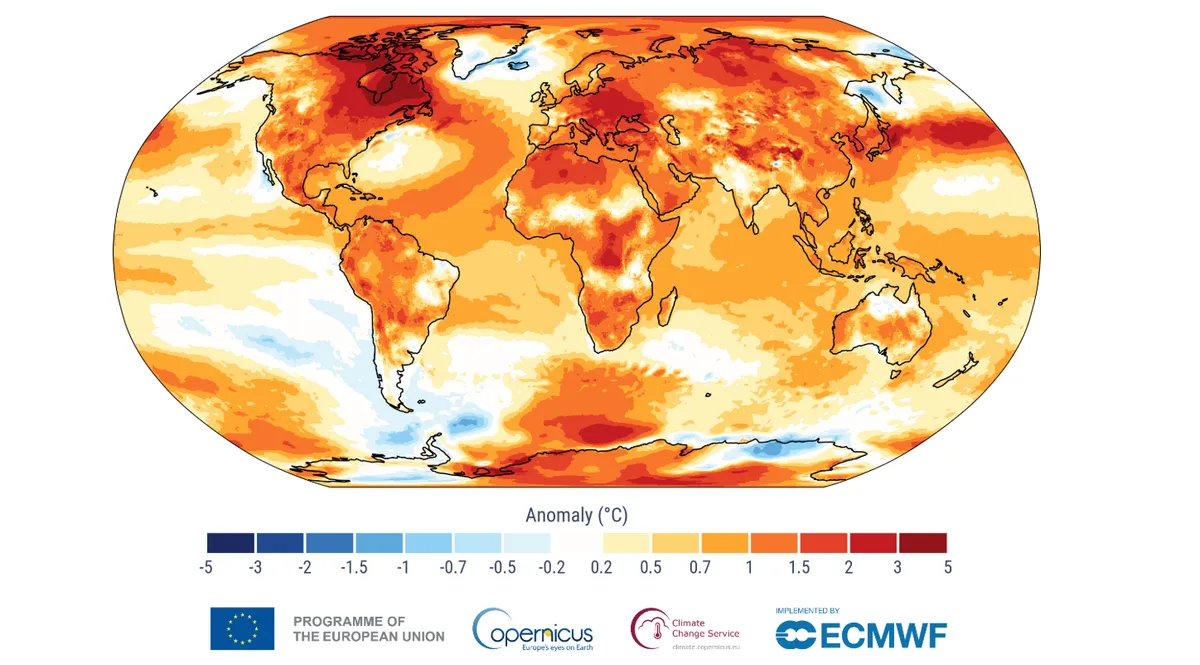The year 2024 has gone down in history as the warmest on record, marking a dramatic change in global climate. Exceeding the 1.5°C threshold above pre-industrial levels for the first time confirms the gravity of the situation and the need for urgent action. As these climate changes create extreme events and affect the lives of millions, world leaders and experts warn that the future depends on the actions we take now. This article looks at the key data and climate records that have made 2024 an unprecedented year.
For the first time, the global average temperature exceeded the threshold of 1.5°C above pre-industrial levels. This threshold is particularly significant as it breaches the limits set by the Paris Agreement, which aims to keep global warming "well below 2°C" and ideally no more than 1.5°C. However, it seems this target has already been exceeded.
"Individual years exceeding the 1.5°C limit does not mean that the long-term goal is compromised. It means that we need to fight even harder to get back on track. Extreme temperatures in 2024 require revolutionary climate action in 2025," said UN Secretary-General António Guterres.
These conclusions are drawn from a new report by the EU's Copernicus Climate Change Service (C3S), published alongside 2024 analyses by NASA, NOAA, the UK Met Office and the World Meteorological Organization.




